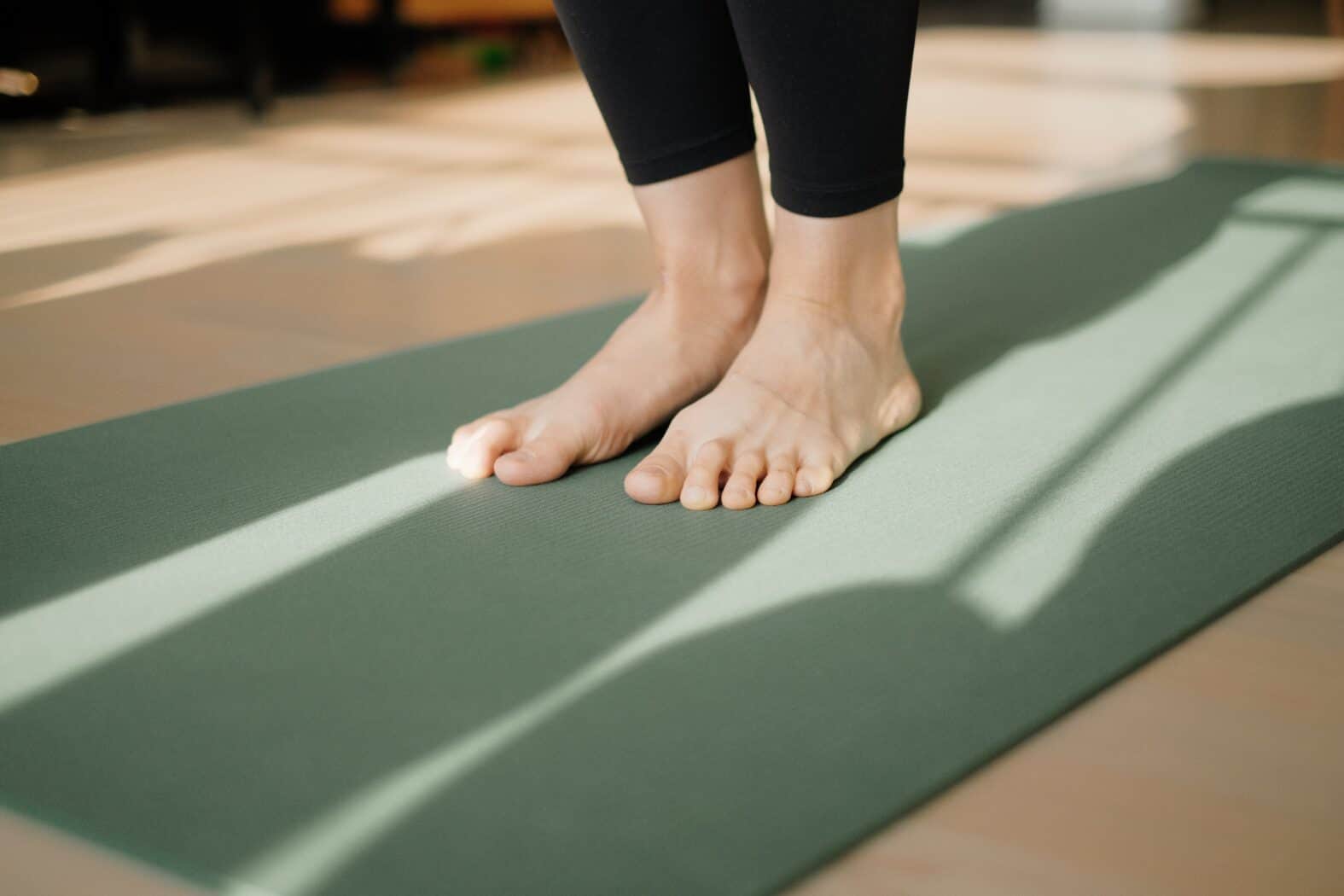
Yoga & Frailty
By Ann Constantino,
Photo by Junseong Lee
A new digest of studies published by Harvard earlier this year indicates that yoga has a positive influence on two standard predictors of frailty: walking speed and ability to get up from a chair.
Frailty is a common factor of risk of poor health outcomes in older adults, but is also seen in younger people with chronic health conditions or during recovery from acute illness. Low grip strength, slow walking speed, lack of stamina, low activity level, and unintentional weight loss are the main identifiable five factors of frailty. When some or all of these symptoms occur, a person is at much higher risk of poor outcomes from falls and other health conditions.
Frailty is a common factor of risk of poor health outcomes in older adults, but is also seen in younger people with chronic health conditions or during recovery from acute illness.
Frailty exists in 3.9% of American adults between 65 and 74 years, and then increases to as much as 25% of the over-85 population. Frailty is thought to be at least partially caused by inflammation and stress on the immune system. Additionally, sarcopenia (gradual loss of muscle mass as we age) plays a role and may also be influenced by inflammation as hormonal changes resulting in inflammation increase with age. Elevated cortisol levels and reduced vitamin D levels may also be factors in the inflammation associated with frailty.
Frailty worsens the stress of surgery, hospitalization, or other health issues, leading to poorer health outcomes and increased mortality. Exposure to flu or pneumonia leads to worse disease in the frail. People with the characteristics of frailty take more falls, and recover from such events more slowly and with more complications.
The Harvard study reviewed 33 papers that measured the effects of yoga on 2400 adults, 65 and older. The review concluded that both walking speed and the ability to get up from a chair were improved among those who practiced yoga.
The clinical importance of improved walking speed, a factor identified with improved health outcomes, was emphasized by the study’s authors as the most significant correlation between yoga and reduced frailty. Yoga was also associated with improved leg strength, specifically in the ability to rise up from sitting in a chair.
In addition to yoga’s positive effects on aspects of frailty, it has also been shown to be good for bone health, as Dr. Loren Fishman has been developing sequences of yoga poses that put the kind of stress on our bones that stimulate bone growth and slow down osteopenia and osteoporosis.
In addition to yoga’s positive effects on aspects of frailty, it has also been shown to be good for bone health.
The type of yoga practiced is important. While there are proven health benefits to the more relaxing forms of yoga in terms of stress management, anxiety, blood pressure, etc. it is the stronger physical forms of yoga that address frailty, and more specifically, bone health and sarcopenia.
Iyengar style yoga uses longer holds in the postures and includes more muscle activation to achieve tension on the bone as well as to improve muscular capacity in a wide variety of ranges of motion. Other styles of yoga that borrow from Iyengar lead to similar results. Resistance training has long been known to promote bone strength.
SoHum Health sponsors public classes that incorporate strength-building forms of yoga. These classes are offered both online and in-person, for free or by small donation. Online Restorative Movement is offered on Tuesdays and Thursdays at 10:30 on Zoom. In-person Restorative Movement is offered at Lost Coast Fitness on Tuesdays at 12:30, and In-person Restorative Yoga is offered Sundays at 11:30, also at Lost Coast Fitness in the Meadows. For the most strengthening form of yoga per se, an all-levels Hatha Yoga class is offered both online and in person Sunday mornings at 10 am. The suggested donation for this non-sponsored class is $10-$15. For more information about all of these classes as well as to find out how to sign up for the online classes, please contact Ann at 707-296-8720 or annconstantino@gmail.com
Ann Constantino, submitted on behalf of the SoHum Health’s Outreach department.
Related: Mental Health, Wellness